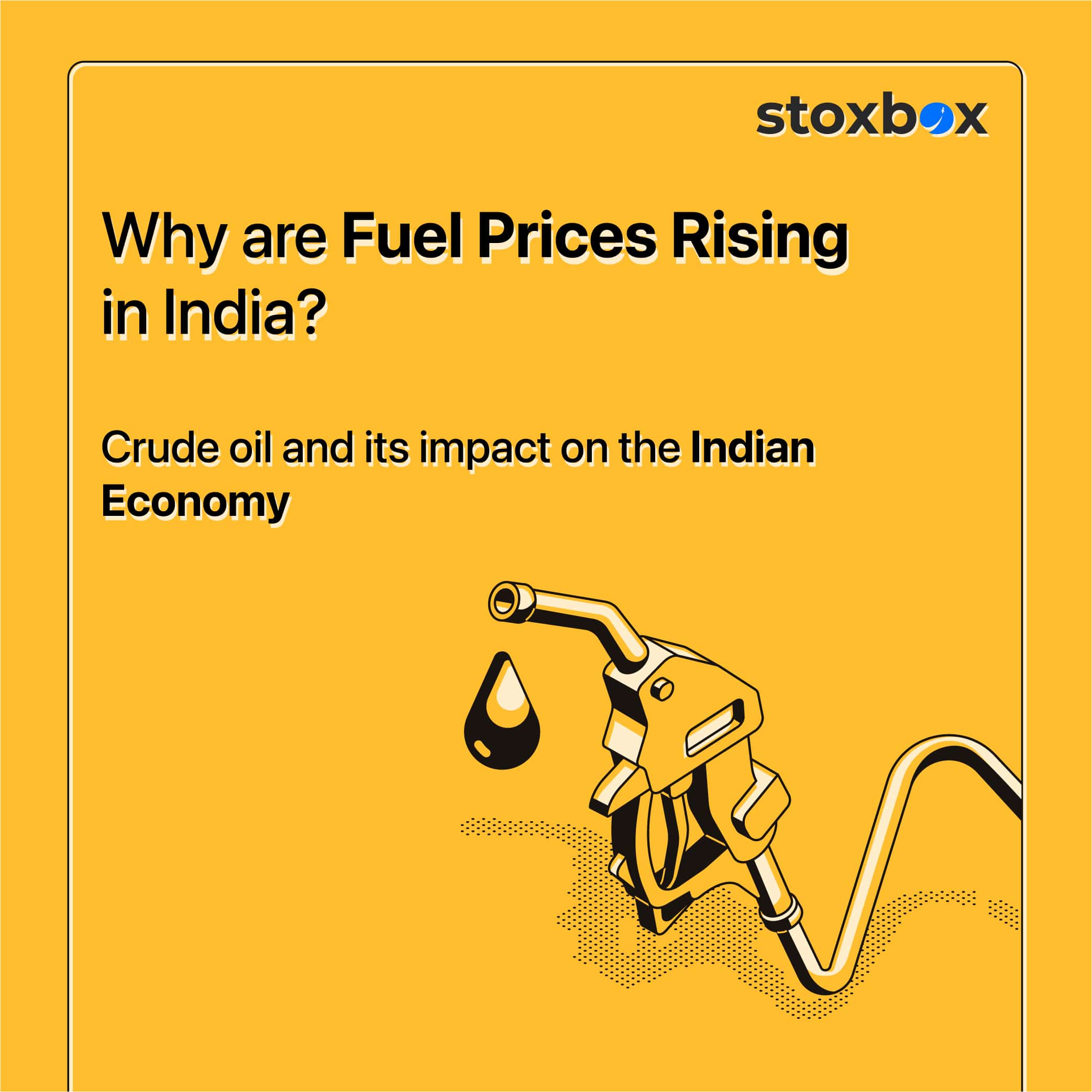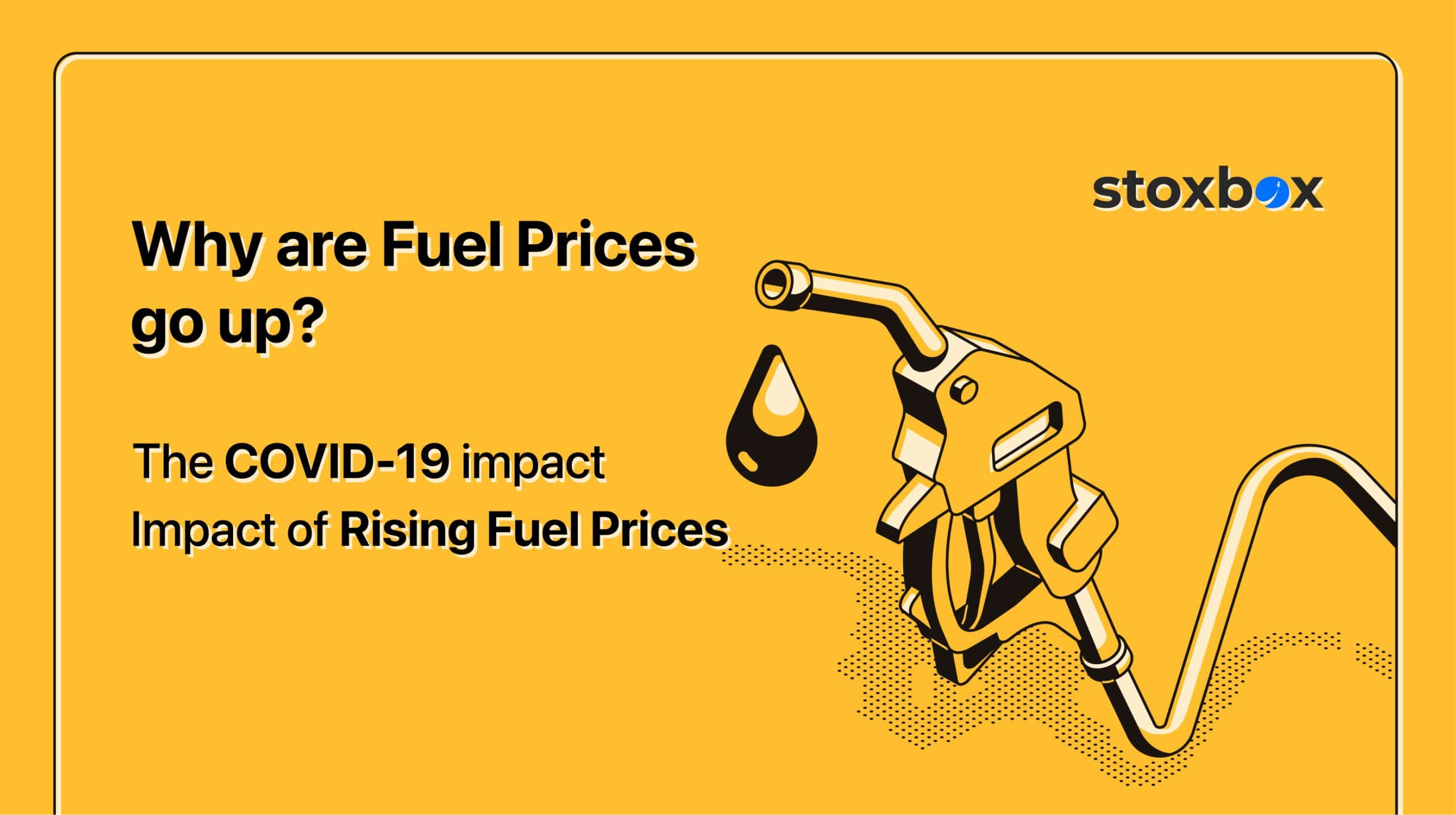2021 Impact of Crude Oil Prices on Indian Economy
Crude oil and its impact on the Indian Economy

For any economy to prosper and grow, the energy sector plays a key role. There are many different sources of energy such as crude, natural gas, hydroelectric, coal, nuclear, solar and wind.
Crude is widely used as a source of energy. India is one of the largest importers of crude oil in the world. More than 80% of India’s crude requirements are met through imports. Any rise in global crude prices puts immense pressure on our import bill and Indian Rupee. India imports crude mainly from the Middle east. The cost of crude is decided by an association of Middle Eastern countries called the Organization of the Petroleum Exporting Countries (OPEC). This body regulates the price of crude by varying the production capacity. Global demand also determines the cost of crude oil.
| 2021 Impact of Crude Oil Prices on Indian Economy |
Why do fuel prices go up?
The international market has reduced its fuel production, and the oil-rich nations are looking at higher profits. This results in the consumer countries suffering from higher fuel prices. India imports nearly 80% of its crude oil requirements. Hence, the country is bearing the brunt of higher fuel prices. Also, the rapid pace of industrialization across the globe has led to an increase in demand and consumption of fuel.
Fuel sales attract central as well as state taxes apart from the refining cost. Taxes on fuel is the biggest contributor to state treasuries. The central government also estimates a significant contribution from fuel sales in annual budgets. Hence, despite many assurances, neither the State Govt nor Central Government would like to reduce their revenues. Freight charges and the dealer commission when added to it adds up to more than the base price of fuel.
Global demand for crude oil has been consistently on the upside. Consumption of energy has gone up thanks to advancements in technology. People across the world are relying more on gadgets and other electronic devices for daily use. E.g., A couple of decades back, mobile phones were a luxury, and only the privileged could afford one. Today the cell phone penetration is so high that 5.22 billion unique people across the globe charge their phones every day.
Geopolitical tensions add to the spike in global oil prices. A war-like scenario increases the demand for fuel, and hence prices could spike. In the recent past, tensions between the US and Iran (Iran is the second-largest oil producer in the world after Saudi Arabia) have led to a surge in oil prices. Also, civil wars in oil-producing nations across the Middle East and Africa have reduced oil production.
India’s consumption of fuel has also gone up in recent years. With an increasingly young population and rise in per capita income, Indians are spending more on cars and gadgets. Hence, an increase in consumer demand has led to fuel prices spiralling.
The Government of India has deregulated fuel prices since 2014. Under the new deregulated mechanism, the price of fuel is directly linked to the international price of crude oil. This should have given a lot of relief to consumers as India had witnessed a sharp fall in international crude prices last year. Despite the sharp fall in prices, the selling price of fuel did not reduce. This was primarily because of the government’s decision to increase central and state taxes. This decision by the government offset the advantage of a fall in crude prices for the end consumers. In the end, the consumers had to bear the brunt of the increased taxes, and they ended up paying higher prices for petrol/diesel despite a fall in international crude price.
The COVID-19 impact
The second wave of the pandemic is now affecting India. In the initial part of the pandemic, demand for diesel, petrol, jet fuel, and LPG fell due to restrictions across the region. Economic activities and travel have been hit as a result of the rising number of cases and restrictions, further reducing demand.
The Indian government, on the other hand, has begun to prioritise its vaccination programme. Vaccination will be available to everyone over the age of 18, beginning May 1st. It is now widely believed that India will soon recover from the pandemic, allowing us to restart our economic and social activities. And once these operations resume, we should expect an increase in fuel demand.
| 2021 Impact of Crude Oil Prices on Indian Economy |
Impact of rising fuel prices
The bulk of India’s crude oil needs are met by imports. As a result, any rise in crude oil prices will directly increase India’s spending, negatively impacting the country’s fiscal deficit. The amount of money borrowed by the government to finance its expenditures is known as the fiscal deficit. Any rise in the fiscal deficit could wreak havoc on the economy and financial markets. It also affects India’s sovereign credit ratings.
Any rise in fuel prices has a direct impact on the Indian Rupee. If the crude prices remain high, the value of the Rupee depreciates, thus impacting both the Indian economy as well as the stock markets.
Many Indian businesses depend on stable crude oil prices. This includes tyre, lubricant, and footwear manufacturers, as well as refineries and airline firms. Higher production costs hurt the profitability of these businesses. In the short term, this may have a negative effect on stock prices. On the other hand, an increase in oil prices could favour the country’s oil exploration companies.
Crude is primarily used for the generation of power and fuel for vehicles. Any increase in demand would lead to an increase in price, which would exert immense pressure on foreign reserves and India’s CAD.
Oil is a critical commodity that is needed to meet domestic fuel requirements. Furthermore, it is an essential raw material used in a variety of industries. A rise in the price of crude oil implies a rise in the cost of manufacturing products. Consumers would eventually bear the brunt of this price increase, resulting in inflation.
Fuel price is a politically and socially sensitive issue. We have seen governments being dismissed and increasing shutdowns due to the increase in fuel prices.
In conclusion, despite global fuel prices softening for the majority of 2020-21, the benefit was not passed on to the Indian consumers. With the economy expected to bounce back with a V-shaped recovery, the fuel demand is expected to rise, forcing global crude producers to increase production to meet the increased demand. The Indian government would have to reduce the taxes to keep the fuel price in check and in turn, reduce the burden on the consumers.
You might also Like.
No posts found!
